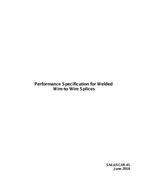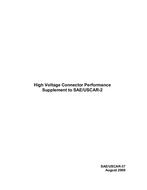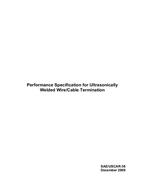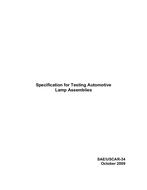Description
This SAE Recommended Practice is intended as the definition of a standard test, which may be subject to frequent change to keep pace with experience and technical advances. This should be kept in mind when considering its use.The SAE No. 2 Friction Test Machine is used to evaluate the friction characteristics of automatic transmission plate clutches with automotive transmission fluids. It can also be used to conduct durability tests on wet friction systems.The specific purpose of this document is to define a mPVT Test for the evaluation of the variation of wet friction system performance as a function of speed, temperature, and pressure. This procedure is intended as a standard for both suppliers and end users.The only variables selected by the supplier or user of the friction system are: a. Friction Material; b. Fluid; and c. Reaction Plates.These three variables must be clearly identified when reporting the results of this test. If any of the test parameters or system hardware as described in this document are changed, other than the friction material, test fluid, or reaction plates, the data may not be reported as having been obtained using this document.This procedure is intended to evaluate the endpoint/midpoint ratios, midpoint and breakaway coefficients. The procedure can be used to demonstrate changes that occur between the different levels of engagement speed, sump temperature and apply pressure. Refer to SAE J2487, SAE J2488, or SAE J2489 for coefficient variations due to changes in power level.The procedure, as described in detail in Table 1, consists of four 50 cycle break-in levels at 3500 r/min with increasing steps of apply pressure, followed by 16 levels consisting of 25 dynamic engagements and one breakaway following completion of the 25th dynamic cycle. The 16 levels are achieved by varying initial engagement speed, apply pressure and oil sump temperature while the inertia is kept constant at 0.701 kg- m\u2.
Product Details
- Published:
- 04/01/2000
- File Size:
- 1 file , 1.1 MB




